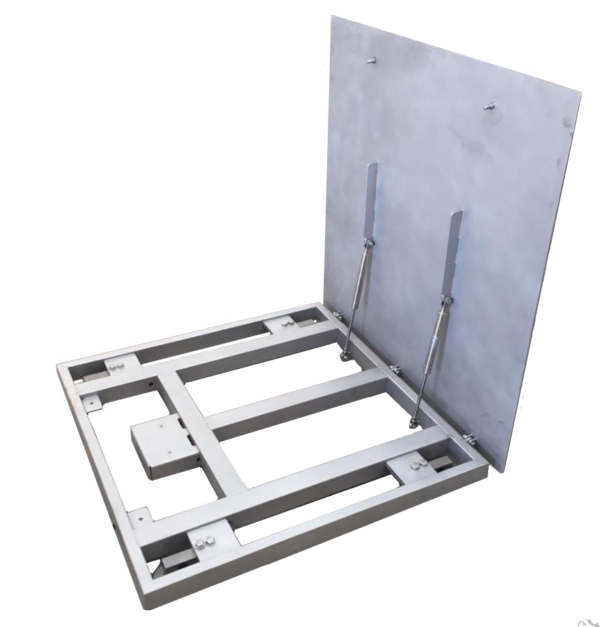What’s the Difference Between a Platform Scale and a Floor Scale?
In a word? None.
When it comes to weighing heavy objects or measuring large quantities, platform scales and floor scales are two terms often used interchangeably. However, it’s important to understand that there is no actual difference between them. In this blog post, we will look at what platform scales are, discuss their applications and delve into the various types available on the market.
What is a Platform Scale?

A platform scale is a robust weighing device designed to handle heavy loads and provide accurate measurements. It consists of a flat, elevated platform where objects are placed for weighing. The scales employ load cells or strain gauges to convert the applied force into an electrical signal, which is then translated into a weight reading. These scales are commonly used in various industries such as manufacturing, warehousing, shipping and agriculture, where precise weight measurements are essential.
Applications:
- Industrial Manufacturing: Platform scales are widely used in manufacturing processes for quality control, inventory management and material handling. They help ensure the accurate measurement of raw materials, finished products and components during production.
- Warehousing and Logistics: In warehouses and distribution centres, scales play a vital role in verifying incoming and outgoing shipments, calculating shipping costs based on weight and maintaining accurate inventory records. They enable efficient loading and unloading of goods by providing real-time weight information.
- Agriculture and Farming: Platform scales are used in the weighing of livestock, produce and feed. Farmers and ranchers rely on these scales for determining animal health, managing feed quantities and optimising productivity.
- Recycling and Waste Management: Scales help with waste management by accurately weighing recyclable materials, waste bins and containers. This data helps in tracking recycling targets, managing waste disposal and ensuring compliance with environmental regulations.
Types of Platform Scales:
- Portable Platform Scales: These scales are designed for mobility and convenience. They often feature built-in wheels or handles, making them easy to transport and position in various locations. Portable scales are ideal for applications where frequent movement is required.
- Heavy-Duty Platform Scales: As the name suggests, heavy-duty scales are engineered to handle extremely heavy loads. They offer high weight capacity and robust construction to withstand the demands of heavy industrial environments.
- Stainless Steel Platform Scales: Stainless steel scales are specifically designed for applications where hygiene and corrosion resistance are crucial, such as food processing, pharmaceuticals, and chemical industries. They are easy to clean, maintain, and sanitize.
- Washdown Platform Scales: These scales are built to withstand water, moisture, and harsh cleaning agents. They are commonly used in environments that require frequent washdowns, such as food production and pharmaceutical facilities, where cleanliness is paramount.
While the terms “platform” and “floor” are often used interchangeably, there is no fundamental difference between the two. Platform scales are versatile tools employed across various industries to ensure accurate weight measurements of heavy objects. By understanding their applications and the different types available, you can select the most suitable platform scale for your specific needs. Whether you’re managing inventory, optimising production or maintaining compliance, a reliable scale is an invaluable asset in your operations.




















